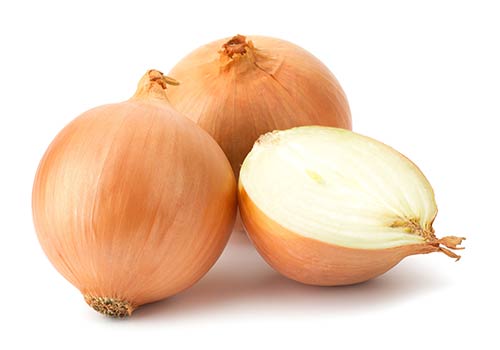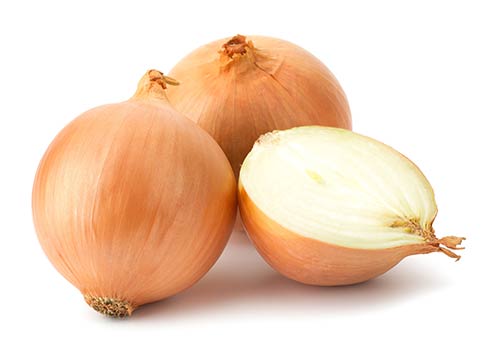cure
something that makes someone who is sick healthy again
درمان، معالجه، مداوا
There is no cure for this disease.
اين بيمارى درمان ندارد.
Oxford Essential Dictionary
cure
noun
something that makes an illness go away:
a cure for cancer
Longman Dictionary of Contemporary English
cure
I. cure1 /kjʊə $ kjʊr/ BrE AmE noun [countable]
[Word Family: adjective: cured, curable ≠ incurable, curative; verb: cure; noun: cure]
[Date: 1200-1300; Language: Old French; Origin: Latin cura 'care']
1. a medicine or medical treatment that makes an illness go away
cure for
There is still no cure for AIDS.
2. something that solves a problem, or improves a bad situation ⇨ solution
cure for
There is no easy cure for loneliness.
3. the act of making someone well again after an illness:
The new treatment effected a miraculous cure.
• • •
COLLOCATIONS
■ verbs
▪ find/discover a cure Scientists are still hoping to find a cure for the common cold.
▪ develop a cure It will be at least ten years before a cure is developed.
▪ seek/search for/look for a cure $3 billion a year is spent searching for a cure for cancer.
■ ADJECTIVES/NOUN + cure
▪ an effective cure A few decades ago there was no effective cure for the disease.
▪ a miracle cure (=a very effective one that cures a serious disease) People always hope for a miracle cure.
■ phrases
▪ no known cure At present is there is no known cure for this virus.
▪ the search for a cure Billions of pounds have been spent on the search for a cure.
▪ prevention is better than cure British English, an ounce of prevention is worth a pound of cure American English (=used to say that it is better to prevent illness than to cure it)
• • •
THESAURUS
▪ cure a medicine or medical treatment that makes an illness go away: The scientists are trying to find a cure for Alzheimer’s Disease.
▪ remedy a way to treat a health problem, especially a small problem such as a cold, using plants or other natural methods: Rinsing with salt water is a good home remedy for a sore throat. | The store sells herbal remedies.
▪ antidote a medicine that will stop the effects of a poison or dangerous drug: There is no known antidote to a bite from this snake.
Oxford Advanced Learner's Dictionary
noun
1. ~ (for sth) a medicine or medical treatment that cures an illness
• the search for a cure for cancer
• There is no known cure but the illness can be treated.
• The only real cure is rest.
2. the act of curing sb of an illness or the process of being cured
• Doctors cannot effect a cure if the disease has spread too far.
• The cure took six weeks.
3. ~ (for sth) something that will solve a problem, improve a bad situation, etc
• a cure for poverty
see prevention is better than cure at prevention
Word Origin:
Middle English (as a noun): from Old French curer (verb), cure (noun), both from Latin curare ‘take care of’, from cura ‘care’. The original noun senses were ‘care, concern, responsibility’, in particular spiritual care. In late Middle English the senses ‘medical care’ and ‘successful medical treatment’ arose, and hence ‘remedy’.
Thesaurus:
cure noun C
• The only real cure is rest.
remedy • • antidote • • medicine • • treatment • • therapy •
a/an cure/remedy/antidote/medicine/treatment/therapy for sth
a herbal cure/remedy/medicine
find a/an cure/remedy/antidote
Example Bank:
• His new job was almost a rest cure after the stresses of the army.
• If the disease is detected early, it has a cure.
• Prevention is better than cure, so start looking after your heart now.
• Prevention is better than cure, so start taking care of yourself.
• Science cannot provide a cure for all the world's problems.
• The cure works by boosting the body's immune system.
• There is no instant cure for this condition.
• There is no known cure for the disease.
• These drugs can sometimes effect miraculous cures.
• scientists seeking a cure for AIDS
• the search for a cure for the common cold
• Although there is no cure for this illness, it can be treated to reduce the pain.
• Doctors cannot effect a cure if the illness has spread too far.
Cambridge Advanced Learner's Dictionary
Cambridge Advanced Learner's Dictionary - 4th Edition
cure / kjʊə r / / kjʊr / noun [ C ]
B2 something that makes someone who is sick healthy again:
There's still no cure for cancer.
The disease has no known cure (= a cure has not yet been found) .
a solution to a problem:
The best cure for boredom is hard work!
© Cambridge University Press 2013
Collins COBUILD Advanced Learner’s English Dictionary
cure
[kjʊ͟ə(r)]
♦♦♦
cures, curing, cured
1) VERB If doctors or medical treatments cure an illness or injury, they cause it to end or disappear.
[V n] An operation finally cured his shin injury...
[V n] Her cancer can only be controlled, not cured.
2) VERB If doctors or medical treatments cure a person, they make the person well again after an illness or injury.
[V n] MDT is an effective treatment and could cure all the leprosy sufferers worldwide...
[V n] Almost overnight I was cured...
[V n of n] Now doctors believe they have cured him of the disease.
Syn:
heal
3) N-COUNT: oft N for n A cure for an illness is a medicine or other treatment that cures the illness.
There is still no cure for a cold...
Atkinson has been told rest is the only cure for his ankle injury.
4) VERB If someone or something cures a problem, they bring it to an end.
[V n] Private firms are willing to make large scale investments to help cure Russia's economic troubles...
[V n] We need to cure our environmental problems.
5) N-COUNT: usu with supp, oft N for n A cure for a problem is something that will bring it to an end.
Punishment can never be an effective cure for acute social problems...
The magic cure for inflation does not exist.
Syn:
solution
6) VERB If an action or event cures someone of a habit or an attitude, it makes them stop having it.
[V n of n] The experience was a detestable ordeal, and it cured him of any ambitions to direct again...
[V n] He went to a clinic to cure his drinking and overeating.
7) VERB: usu passive When food, tobacco, or animal skin is cured, it is dried, smoked, or salted so that it will last for a long time.
[be V-ed] Legs of pork were cured and smoked over the fire.
[V-ed] ...sliced cured ham.
Merriam-Webster's Advanced Learner's Dictionary
1cure /ˈkjɚ/ noun, pl cures [count]
1 : something (such as a drug or medical treatment) that stops a disease and makes someone healthy again
• The disease has no cure. [=the disease cannot be cured; the disease is incurable]
- often + for
• There is no cure for the common cold.
• The drug was sold as a cure for a variety of ailments.
2 : something that ends a problem or improves a bad situation : solution
• This is a problem that has no easy cure.
- often + for
• The highway construction program was presented as a cure for unemployment.
• Exercise is a good cure for stress.
3 : the act of making someone healthy again after an illness
• The doctors were unable to effect a cure because the disease had spread too far.



